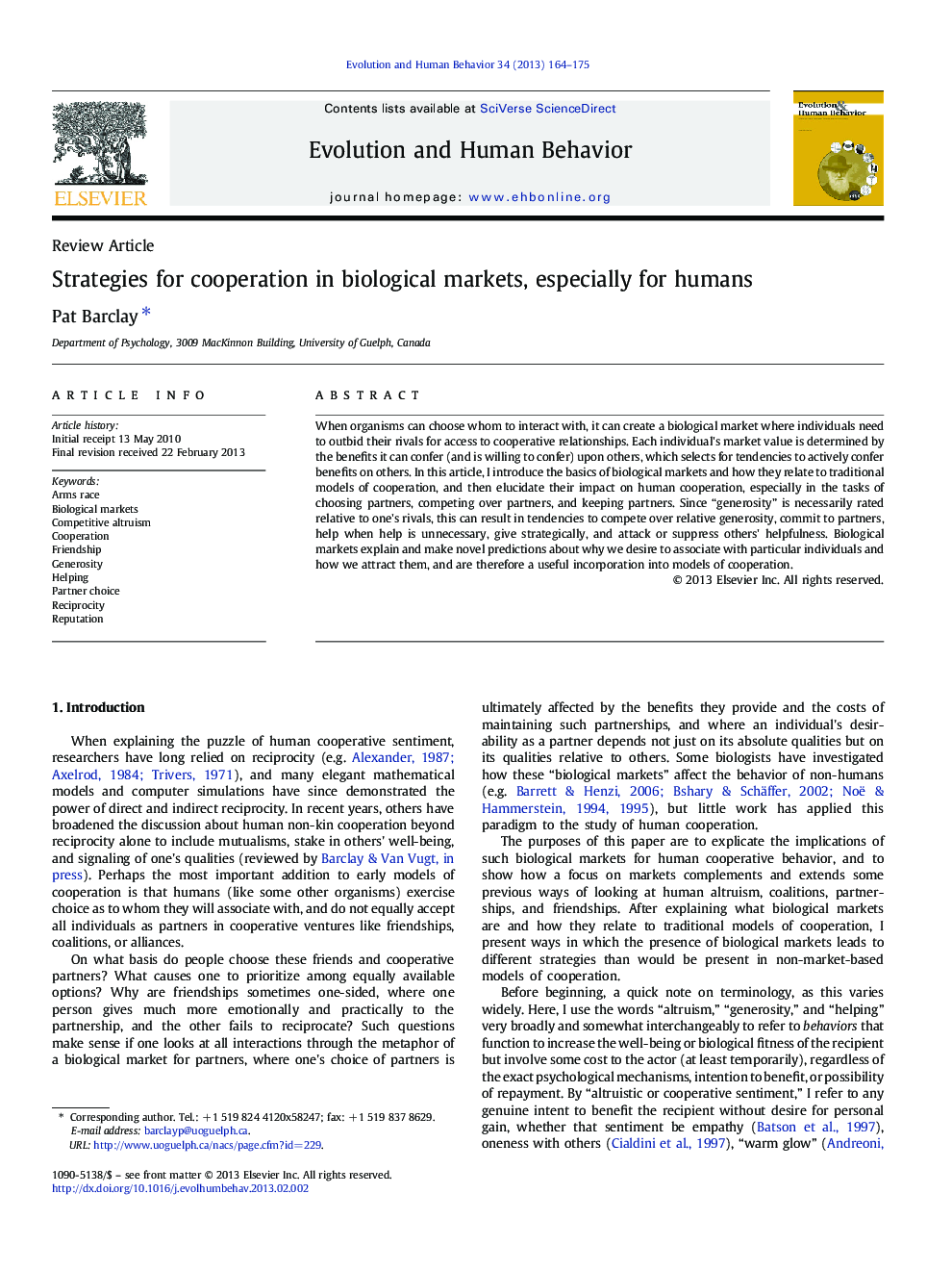| Article ID | Journal | Published Year | Pages | File Type |
|---|---|---|---|---|
| 943129 | Evolution and Human Behavior | 2013 | 12 Pages |
When organisms can choose whom to interact with, it can create a biological market where individuals need to outbid their rivals for access to cooperative relationships. Each individual's market value is determined by the benefits it can confer (and is willing to confer) upon others, which selects for tendencies to actively confer benefits on others. In this article, I introduce the basics of biological markets and how they relate to traditional models of cooperation, and then elucidate their impact on human cooperation, especially in the tasks of choosing partners, competing over partners, and keeping partners. Since “generosity” is necessarily rated relative to one's rivals, this can result in tendencies to compete over relative generosity, commit to partners, help when help is unnecessary, give strategically, and attack or suppress others' helpfulness. Biological markets explain and make novel predictions about why we desire to associate with particular individuals and how we attract them, and are therefore a useful incorporation into models of cooperation.
